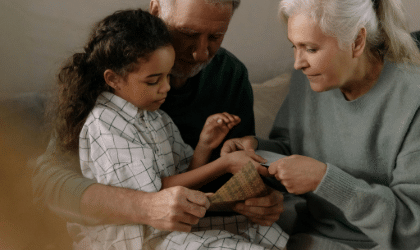If you or a loved one has been hurt – whether from a slip and fall, a car accident or another incident – get checked by a doctor. And while you are there, be sure to ask for a diagnosis.
Why? The most important reason is so that the injury can be properly treated. Without a doctor’s diagnosis, neither you nor anyone else can know the full severity of the trauma that was sustained nor how it might evolve over time. Secondly, if you choose to pursue a personal injury claim, a diagnosis is an essential first step.
You may be wondering if you have a suitable injury for a claim, and the best way for your lawyer to determine your legal options is to know your diagnosis. This injury diagnosis not only legitimizes your claim, proving your pain is real, but it helps your lawyer properly assess your case. They can compare your claim to others, determining its chances of success and helping yield proper damages to cover your injuries.
Don’t Just Tough it Out After an Accident
After an accident, the most important thing to do is seek medical help, even if you feel your injuries are minor. When an accident occurs, the human body fills with adrenaline, so an injured person may not initially feel much pain. This leads many to assume their injuries are manageable, but their pain may worsen over time.
Even symptoms that seem minor at first can later develop into a chronic problem. For example, if your knee pain feels trivial compared to your sprained ankle, you may discover that as your sprained ankle heals, your knee pain becomes more noticeable.
Concussions are an example of an invisible injury. They are not easy to recognize, and they don’t necessarily involve loss of consciousness, as many people assume.
“Signs and symptoms [of a concussion] may occur right after the injury, or hours or days later,” says the Algoma Public Health website. “You can have a concussion and not realize it.” A doctor can assess your condition and offer a proper diagnosis.
Tell your doctor about the entire incident and all of the issues experienced, be they major and noticeable or minor and possibly invisible. This will help ensure that you not only get the correct diagnosis but that the doctor can find all of the diagnoses related to your trauma.
Once your doctor diagnoses the injury, they can prescribe the best course of treatment to help you heal, be it surgery, physiotherapy, or other medical care. After all, you need to care for yourself and your family, and while you recover from your hurt, your household expenses will not wait.
If the Diagnosis Exists, Your Pain is Real.
In Ontario alone, more than 1.2 million people a year visit the emergency room because of an injury, and according to Ontario’s Workplace Safety and Insurance Board (WSIB), injured workers miss an average of almost 8 days of work in the month after an accident. About a third of drivers and passengers involved in vehicle crashes miss at least a day of work. No wonder the World Health Organization calls injuries “a leading cause of the global burden of disease”.
On their own, feelings of pain or tingling after an incident are insufficient to prove a personal injury claim, no matter how miserable you may feel. Getting a proper medical diagnosis legitimizes your claim. When a doctor diagnoses the damage, it is more difficult for the defendant to argue that the pain does not exist. You will have a stronger claim.
A medical professional has the requisite experience to back up their injury diagnosis. In the eyes of the court, they are an expert and their opinion matters. If a doctor diagnosed you with a particular injury, and that injury is known to produce certain types of pain, an official medical diagnosis is supporting proof that your pain is real. It is hard for anyone to refute.
A Proper Diagnosis Helps Your Lawyer Help You.
Pinpointing a diagnosis helps your doctor determine how soon you can safely return to work, or whether your injury may have resulted in a short- or long-term disability. If you do have a disability, your doctor can estimate the extent to which this will restrict your ability to work and earn an income. In turn, this helps in calculating the compensation needed to maintain your financial wellness.
When your lawyer evaluates the strength of your personal injury claim, they can use the diagnosis to compare your case to similar cases in the past. They can properly assess damages, consider your injuries in relation to case law, and develop a better sense of how successful your claim may be if it goes to trial and what financial compensation you can expect.
The correct medical diagnosis after an accident helps your lawyer fight for your rights. The injury diagnosis helps estimate your prognosis, including how long you may take to recover and if you can continue your previous occupation. Knowing all the facts helps your lawyer ensure you get the help you need to cover past, current, and future costs, such as physiotherapy, home or vehicle modifications, and loss of income, along with compensation for your pain and suffering.
With all the facts, your lawyer is better able to fight for the compensation you deserve.
Importance of Early Diagnosis for a Personal Injury Lawsuit.
Getting the diagnosis sooner rather than later helps you get the treatment you need, but it is also important for your personal injury case.
If you tough it out and wait to seek a diagnosis, it suggests to the insurer and the courts that you did not take it seriously, so perhaps the injury isn’t that serious. After all, if you are not serious about caring for your own wellbeing, why should the courts award you any damages? They may also suspect you had a subsequent injury and the original accident was not at fault.
There is another compelling reason to see your doctor before your lawyer. If you speak to a lawyer first, the defendants may determine you care more about money, are not really injured, and are only seeking a doctor to support your claim. Even when this is not the case, you do not want to project this impression.
Ideally, seek medical help the same day you are injured, or if not, as soon as you can within a few days of the accident.
How Do I Proceed with a Personal Injury Case?
The best starting point is to first see your doctor. Once your doctor provides you with an injury diagnosis, and relevant paperwork, it is then time to take that information to your lawyer.
Your legal team will evaluate the medical information and compare your diagnosis and
symptoms to similar cases. This process will help determine if the injury is suitable for a personal injury lawsuit. If similar injuries were unsuccessful in court in the past, your injury is likely unsuitable for a lawsuit and you may not want to pursue a claim. However, if similar diagnoses were successfully settled, you likely have a suitable injury for a claim.
Since 97% of personal injury claims settle before going to trial, it is worth checking with your lawyer to see if you have a suitable injury for a claim. It never hurts to ask an expert for advice when considering a personal injury lawsuit.
After an accident, you deserve to be financially whole again. If you are considering a personal injury case, talk to a lawyer specializing in these cases. Call Gosai Law to evaluate your case and help decide if you should pursue legal action.










